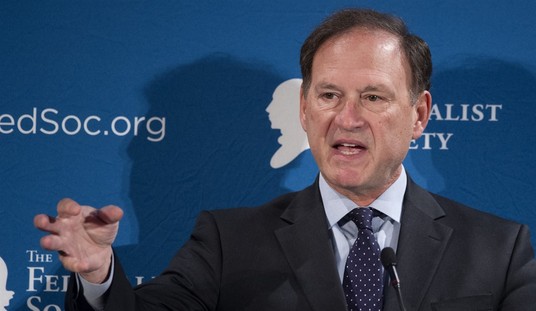In the wake of last Tuesday’s election there has been much debate on the effect that the Tea Party label had on candidates for office.
Last week, MSNBC’s First Read came out with an analysis of Tea Party candidates showing they only managed to win 32% of their races. Unfortunately, the approach taken by MSNBC, by looking at all races without regard to the competitiveness of the district, has the potential to misrepresent the impact of attaching one’s candidacy to the Tea Party movement.
In order to get a better handle on the true impact of the Tea Party label it is useful to restrict our discussion to a list of Tea Party candidates in races that were considered competitive leading up to the election. The following analysis is based on the list of 138 Tea Party affiliated candidates from the New York Times. In the interest of leaving out sure winners and sure losers, races rated as “Solid Democrat” or “Solid Republican” were excluded from the analysis (67 solid ‘D’ races were dropped and 8 solid ‘R’). This leaves 30 races rated as “Leaning Democrat,” 23 races rated as “Tossup” and 10 races rated as “Leaning Republican”.
In order to get at the central question of whether Tea Partiers were underperforming what a “normal” Republican would have done in the district their performance, it is then useful to compare the performance of the Tea Partiers on the ballot with the Cook Partisan Voting Index of the district.
One final note, due to the uniqueness of what went on in Florida and Alaska they have been excluded from the analysis. The data in full:
| State | CookPVI | Party | Tea Party Candidate | Win/Loss | Open or Challenger | Performance vs. PVI |
| Kentucky | R+10 | Republican | Rand Paul | W | O | 2 |
| Colorado | EVEN | Democratic | Ken Buck | L | C | -1 |
| Nevada | D+1 | Both | Sharron Angle | L | C | -4 |
| Pennsylvania | D+2 | Democratic | Pat Toomey | W | O | 4 |
| Wisconsin | D+2 | Democratic | Ron Johnson | W | C | 7 |
| Delaware | D+7 | Democratic | Christine O’Donnell | L | O | -10 |
| State |
District |
Cook PVI | Party | Tea Party Candidate | Win/Loss | Open or Challenger | Performance vs. PVI |
| Arizona | 7th | D+6 | Democratic | Ruth McClung | L | C | 2 |
| Arizona | 8th | R+4 | Democratic | Jesse Kelly | L | C | -6 |
| Arizona | 5th | R+5 | Democratic | David Schweikert | W | C | 5 |
| Arizona | 1st | R+6 | Democratic | Paul Gosar | W | C | 0 |
| Arkansas | 4th | R+7 | Democratic | Beth Rankin | L | C | -25 |
| Arkansas | 1st | R+8 | Democratic | Rick Crawford | W | O | -4 |
| California | 18th | D+4 | Democratic | Michael Berryhill | L | C | -12 |
| California | 11th | R+1 | Democratic | David Harmer | L | C | 0 |
| Delaware | At-large | D+7 | Republican | Glen Urquhart | L | O | -9 |
| Florida | 22nd | D+1 | Democratic | Allen West | W | C | 9 |
| Florida | 24th | R+4 | Democratic | Sandy Adams | W | C | 16 |
| Florida | 2nd | R+6 | Democratic | Steve Southerland | W | C | 7 |
| Hawaii | 1st | D+11 | Republican | Charles Djou | L | I | 5 |
| Idaho | 1st | R+18 | Democratic | Raul Labrador | W | C | -8 |
| Illinois | 17th | D+3 | Democratic | Robert Schilling | W | C | 9 |
| Illinois | 8th | R+1 | Democratic | Joe Walsh | W | C | -1 |
| Illinois | 11th | R+1 | Democratic | Adam Kinzinger | W | C | 14 |
| Illinois | 14th | R+1 | Democratic | Randy Hultgren | W | C | 1 |
| Illinois | 10th | D+6 | Republican | Robert Dold | W | O | 8 |
| Indiana | 2nd | R+2 | Democratic | Jackie Walorski | L | C | -3 |
| Indiana | 9th | R+6 | Democratic | Todd Young | W | C | -2 |
| Kentucky | 3rd | D+2 | Democratic | Todd Lally | L | C | -9 |
| Maine | 2nd | D+3 | Democratic | Jason Levesque | L | C | -7 |
| Massachusetts | 4th | D+14 | Democratic | Sean Bielat | L | C | 3 |
| Massachusetts | 10th | D+5 | Democratic | Jeff Perry | L | O | -9 |
| Michigan | 15th | D+13 | Democratic | Rob Steele | L | C | -4 |
| Michigan | 9th | D+2 | Democratic | Rocky Raczkowski | L | C | -1 |
| Michigan | 7th | R+2 | Democratic | Tim Walberg | W | C | 3 |
| Michigan | 1st | R+3 | Democratic | Dan Benishek | W | O | 5 |
| Missouri | 4th | R+14 | Democratic | Vicky Hartzler | W | C | -9 |
| Nevada | 3rd | D+2 | Democratic | Joe Heck | W | C | 3 |
| New Hampshire | 1st | EVEN | Democratic | Frank Guinta | W | C | 11 |
| New Mexico | 1st | D+5 | Democratic | Jonathan Barela | L | C | 1 |
| New York | 22nd | D+6 | Democratic | George Phillips | L | C | 2 |
| New York | 25th | D+3 | Democratic | Ann Marie Buerkle | W | C | 3 |
| New York | 20th | R+2 | Democratic | Chris Gibson | W | C | 8 |
| New York | 13th | R+4 | Democratic | Michael Grimm | W | C | 0 |
| North Carolina | 8th | R+2 | Democratic | Harold Johnson | L | C | -11 |
| Ohio | 13th | D+5 | Democratic | Tom Ganley | L | C | -5 |
| Ohio | 1st | D+1 | Democratic | Steve Chabot | W | C | 8 |
| Ohio | 15th | D+1 | Democratic | Steven Stivers | W | C | 15 |
| Ohio | 6th | R+2 | Democratic | Bill Johnson | W | C | 3 |
| Ohio | 16th | R+4 | Democratic | Jim Renacci | W | C | 0 |
| Pennsylvania | 12th | R+1 | Democratic | Tim Burns | L | C | -3 |
| Pennsylvania | 4th | R+6 | Democratic | Keith Rothfus | L | C | -8 |
| South Carolina | 5th | R+7 | Democratic | Mick Mulvaney | W | C | 3 |
| Tennessee | 4th | R+13 | Democratic | Scott DesJarias | W | C | 6 |
| Texas | 27th | R+2 | Democratic | Blake Farenthold | W | C | -1 |
| Texas | 17th | R+20 | Democratic | Bill Flores | W | C | 5 |
| Virginia | 11th | D+2 | Democratic | Keith Femian | L | C | 2 |
| Virginia | 9th | R+11 | Democratic | Morgan Griffith | W | C | -6 |
| Washington | 2nd | D+3 | Democratic | John Koster | L | C | 2 |
| West Virginia | 1st | R+9 | Democratic | David McKinley | W | O | -8 |
| Wisconsin | 8th | R+2 | Democratic | Reid Ribble | W | C | 8 |
| Wisconsin | 7th | D+3 | Democratic | Sean Duffy | W | O | 10 |
A few observations “worth reading”:
-
Tea Party candidates in the Senate races performed pretty well but not quite as well as their counterparts in the House.
- Tea Partiers in Senate races end up with an overall average of -.33 vs. PVI, basically performing on average as you would expect a Republican to in the Senate races.
- Tea Party candidates in competitive races in the House won 60% of the time. Overall Tea Party candidates in the House outperformed the PVI of their district by +.47%.
-
In the Senate races there is a difference in Tea Party win rate between challengers and those running for open seats.
- Challengers won one and lost two against incumbents as the incumbents really did a pretty good job of defending their seats.
- In the open races though, Tea Party candidates had success. They picked up three out of the four races for open Senate seats.
-
Tea Partiers in House Races fared better against incumbents.
- Eighty-five percent of the Tea Party races in the House were against an incumbent. Of that group Tea Partiers outperformed the PVI of the district by +.60%.
In fact, by looking only at races that were truly competitive, we find that Tea Party candidates actually perform better than one would expect the generic Republican candidate to perform.
Going into 2012, that is a fact that pundits and politicians ignore at their peril.













Join the conversation as a VIP Member